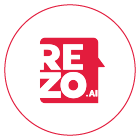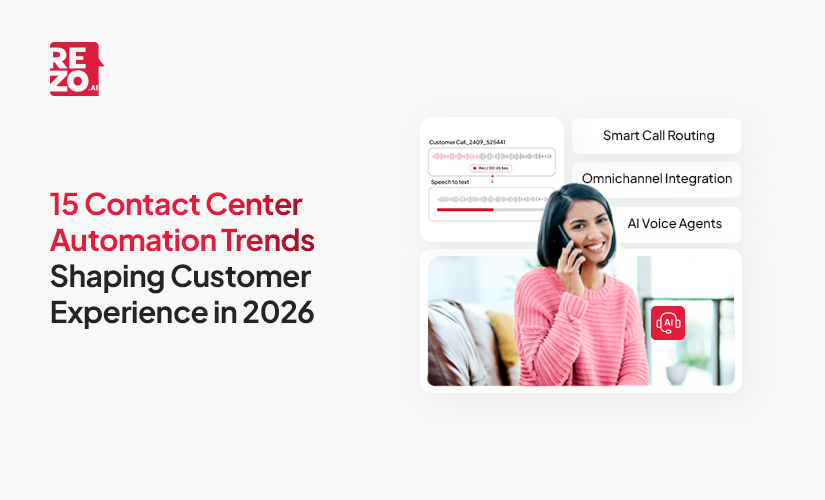
What is a Cloud Contact Center

What is a Cloud Contact Center


What is a Cloud Contact Center?
Cloud Contact Centers have transformed the way businesses engage with their customers. These innovative solutions leverage cloud technology to deliver seamless customer experiences, enhance agent productivity, and drive operational efficiency. By moving traditional contact center infrastructure to the cloud, organizations can enjoy flexibility, scalability, and cost savings while delivering exceptional service.
How does a Cloud Contact Center work?
A Cloud Contact Center operates through software hosted in the cloud, rather than on-premises hardware. The system consolidates multiple communication channels like voice, email, chat, and social media into a single unified platform. This enables a consolidated view of customer interactions, empowering agents to deliver personalized and efficient support. Through cloud-based infrastructure, contact centers can handle high call volumes, easily scale operations, and access advanced analytics for actionable insights.
Features of a Cloud Contact Center

- Omnichannel Support: Cloud Contact Centers provide seamless integration across multiple channels, allowing customers to communicate through their preferred method, be it voice, email, chat, or social media.
- CRM Integration: By integrating with Customer Relationship Management (CRM) systems, contact centers gain access to comprehensive customer data, enabling agents to offer personalized and contextualized support.
- Intelligent Routing: Cloud Contact Center solutions leverage intelligent routing algorithms to ensure that customer inquiries are directed to the most appropriate agent or department. This reduces wait times and enhances the customer experience.
- Real-Time Analytics: Advanced analytics in Cloud Contact Centers provide real-time insights into agent performance, customer satisfaction, and overall contact center efficiency. These insights help identify areas for improvement and drive data-driven decision-making.
- Automation and AI: Cloud Contact Centers employ automation and AI technologies to streamline processes, automate repetitive tasks, and improve self-service capabilities. Chatbots and virtual assistants handle simple inquiries, freeing up agents to handle complex issues.
Benefits of Cloud Contact Center
Cloud Contact Centers offer a range of benefits that empower businesses to deliver exceptional customer experiences while optimizing operations.
- Scalability and Flexibility: Cloud-based infrastructure allows contact centers to easily scale up or down based on demand, ensuring optimal resource allocation and cost efficiency.
- Cost Savings: By eliminating the need for on-premises hardware, maintenance, and upgrades, Cloud Contact Centers significantly reduce upfront costs and ongoing expenses.
- Enhanced Customer Experience: Features like omnichannel support, personalized interactions, and reduced wait times lead to happier customers and improved brand loyalty.
- Improved Agent Efficiency: Cloud Contact Centers provide agents with integrated tools, contextual information, and automation, enabling them to handle inquiries more efficiently and effectively.
- Business Continuity: With built-in redundancy and failover mechanisms, Cloud Contact Centers ensure uninterrupted service, even during outages or disasters.

Cloud Contact Center vs Traditional Contact Center
Cloud Contact Centers offer significant advantages over traditional contact centers, including lower infrastructure costs, increased agility, and better customer experiences.
As you can see, moving from traditional contact centers to cloud contact centers offers numerous advantages. Cloud contact centers provide greater flexibility, scalability, cost-efficiency, and ease of maintenance. They also enable seamless integration with other systems and offer advanced AI capabilities and analytics to drive better decision-making and improved customer interactions.
Cloud Contact Center vs Cloud Call Center
While the terms "Cloud Contact Center" and "Cloud Call Center" are sometimes used interchangeably, there is a subtle difference. Let's explore the key differences between cloud call centers and their transformative counterpart, cloud contact centers.
By embracing cloud contact centers, businesses unlock the power of omnichannel customer experiences, improve operational efficiency, and drive superior ROI. The advanced capabilities offered by contact centers help businesses exceed customer expectations and stay ahead of the competition.
Cloud Contact Center vs PBX Contact Center
A PBX (Private Branch Exchange) Contact Center is typically an on-premises system that handles voice calls within an organization. Unlike a Cloud Contact Center, a PBX Contact Center lacks the flexibility, scalability, and integrated omnichannel capabilities. Let's explore the key differences between cloud contact centers and their traditional counterpart, PBX contact centers.
How to Choose the right Cloud Contact Center Solution?
When choosing a Cloud Contact Center solution, consider the following factors:
- Scalability: Ensure the solution can handle your present and future needs, including peak call volumes and support for additional channels as your business grows.
- Integration: Look for easy integration with your existing systems, such as CRM platforms, to provide a unified view of customer information and interactions.
- Security and Compliance: Ensure the solution adheres to industry standards and regulations to protect customer data and maintain compliance with data privacy laws.
- User-Friendliness: Evaluate the usability and intuitiveness of the platform to ensure a smooth transition and efficient agent onboarding.
- Support and Service Level Agreements: Consider the level of support offered by the provider, including availability, response times, and service level agreements (SLAs).
Implement a Robust Cloud Contact Center
By embracing the power of the cloud and leveraging advanced AI capabilities, businesses can revolutionize their customer interactions and drive superior customer satisfaction.
With Rezo.AI, transitioning to a cloud contact center is seamless and hassle-free. By eliminating the need for on-premises infrastructure, businesses can enjoy the flexibility and scalability needed to meet changing customer demands.
Rezo.AI's integration capabilities ensure a unified view of customer data across various systems, empowering agents to deliver personalized and efficient support. Through automation and AI-powered insights, repetitive tasks are automated, allowing agents to focus on high-value interactions and improve their productivity.
The omnichannel support provided by Rezo.AI enables businesses to engage with customers through various channels, ensuring a uniform and seamless experience. By harnessing the power of the cloud and Rezo.AI's advanced features, businesses can elevate their customer service game and drive customer loyalty.
FAQs on Cloud Contact Center
Frequently Asked Questions (FAQs)

Take the leap towards innovation with Rezo.ai
Get started now














